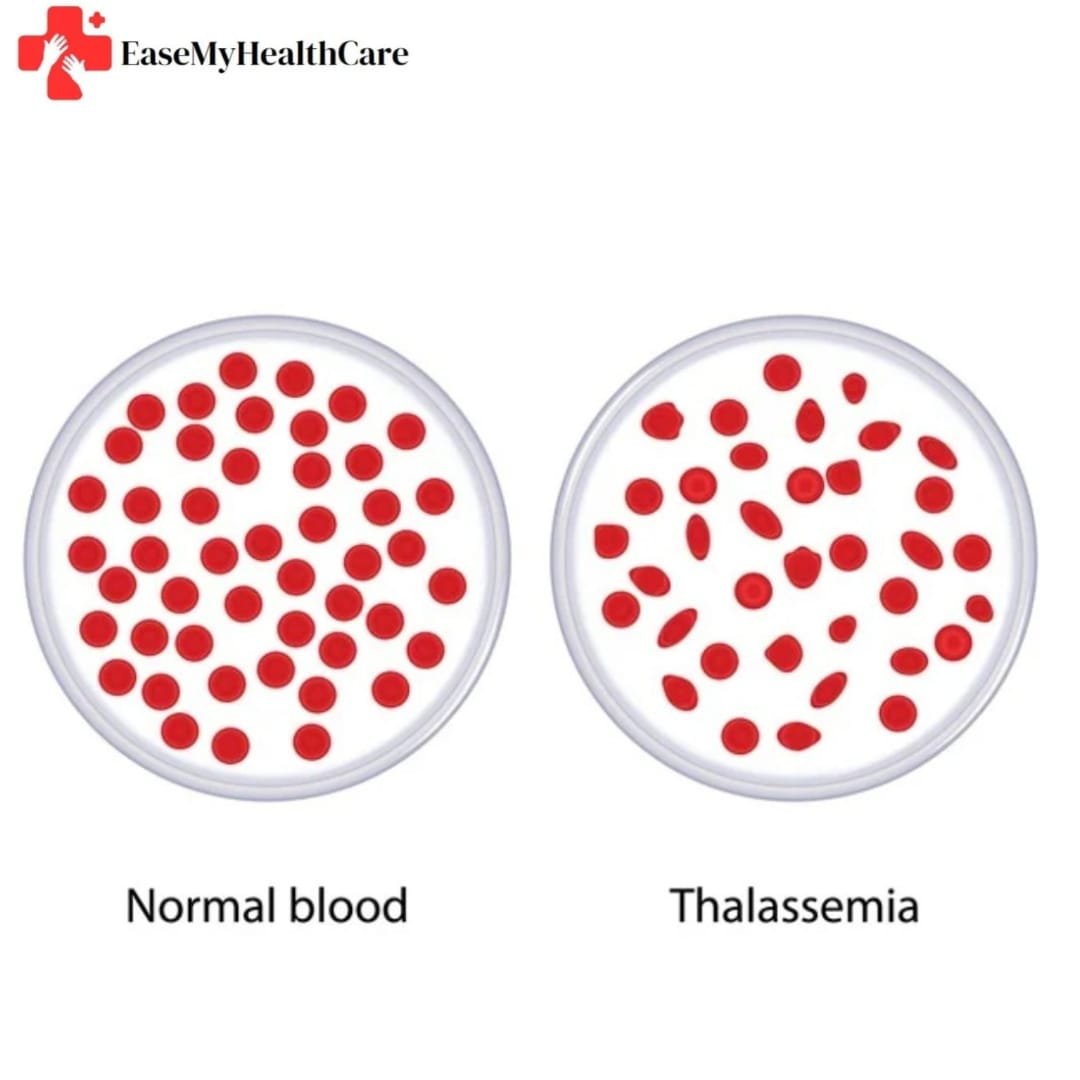Thalassemia is a complex hereditary blood disorder that impairs the body’s ability to produce adequate hemoglobin, leading to chronic anemia. Recognized as a global health challenge, this condition can significantly impact quality of life. India has emerged as a leader in providing advanced, cost-effective solutions for managing and treating thalassemia, attracting patients from around the world.
What is Thalassemia?
Thalassemia is a genetic disorder affecting hemoglobin, the molecule responsible for oxygen transport in the blood. It occurs when gene mutations disrupt the production of normal hemoglobin, leading to a deficiency in red blood cells. This condition is classified into:
- Thalassemia Minor: A mild form, often asymptomatic, with minimal health impact.
- Thalassemia Major (Cooley’s Anemia): A severe form requiring ongoing medical intervention, including blood transfusions and iron chelation therapy.
Key Symptoms of Thalassemia
Patients with thalassemia major typically experience the following:
- Chronic fatigue and weakness
- Pale or yellowish skin
- Stunted growth and delayed puberty
- Bone deformities, particularly in the face
- Enlarged spleen (splenomegaly)
- Frequent infections
Timely diagnosis through genetic testing and blood analysis is essential for effective management.
Why Choose India for Thalassemia Treatment?
India is renowned for its cutting-edge medical facilities, experienced specialists, and patient-centered care. Key advantages include:
- Cost Efficiency: Advanced treatments in India are significantly more affordable than in Western countries, without compromising on quality.
- World-Class Infrastructure: Equipped with state-of-the-art technology, Indian hospitals adhere to international standards.
- Expert Medical Teams: Hematologists and oncologists with global training bring exceptional expertise to managing complex cases.
- Comprehensive Support: Multidisciplinary teams provide holistic care, addressing both medical and emotional needs.
- Seamless International Services: Assistance with visas, travel logistics, and language interpretation ensures a smooth patient experience.
Costs of Thalassemia Treatment in India
The expenses for thalassemia treatment in India vary based on the severity of the condition, treatment type, and the hospital’s location. Below is a breakdown:
| Treatment Modality | Estimated Cost (USD) |
| Regular Blood Transfusions | $500 – $1,500 per session |
| Iron Chelation Therapy | $2,000 – $6,000 annually |
| Bone Marrow Transplant (BMT) | $18,000 – $40,000 |
| Diagnostics & Monitoring | $500 – $1,000 annually |
Treatment Options for Thalassemia
1. Blood Transfusions
- Regular transfusions maintain healthy hemoglobin levels, preventing severe anemia.
- Frequency depends on the patient’s condition, often ranging from biweekly to monthly.
2. Iron Chelation Therapy
- Frequent transfusions can cause iron overload, which is managed through chelation therapy using drugs like deferasirox and deferoxamine.
3. Bone Marrow Transplant (BMT)
- Considered a curative treatment, BMT replaces defective bone marrow with healthy donor cells.
- Success rates are highest when a matched sibling donor is available.
4. Gene Therapy (Emerging Treatment)
- Cutting-edge research in gene therapy offers potential future solutions by correcting the underlying genetic mutation.
5. Supportive Care
- Includes nutritional counseling, vaccinations, and psychological support to enhance overall well-being.
Leading Hospitals for Thalassemia Treatment in India
India boasts several world-class institutions specializing in hematology and thalassemia management. Notable options include:
- All India Institute of Medical Sciences (AIIMS), New Delhi
- Apollo Hospitals, Multiple Locations
- Fortis Memorial Research Institute, Gurgaon
- Christian Medical College (CMC), Vellore
- Narayana Health, Bengaluru
Each of these hospitals offers advanced facilities and personalised care tailored to international patients.
FAQs About Thalassemia Treatment in India
1. Can thalassemia be cured?
- While thalassemia minor requires minimal intervention, thalassemia major can potentially be cured through bone marrow transplantation. Gene therapy also holds promise as a long-term solution.
2. What is the success rate of bone marrow transplants for thalassemia?
- The success rate varies but can reach 85-90% with a matched sibling donor and proper post-transplant care.
3. How long does a bone marrow transplant procedure take?
- The procedure, including preparation and recovery, typically spans 6-8 weeks.
4. What post-treatment care is required?
- Regular follow-ups, iron level monitoring, and adherence to medications are critical for long-term health.
Preparing for Thalassemia Treatment in India
International patients can follow these steps to ensure a smooth medical journey:
- Documentation:
- Compile medical records, genetic test results, and prior treatment history.
- Consultation:
- Schedule online or in-person consultations with specialists to discuss treatment plans.
- Financial Planning:
- Understand the cost structure and inquire about package deals.
- Travel Arrangements:
- Seek assistance from hospital international desks for visas, airport transfers, and accommodations.
Conclusion
India’s expertise in thalassemia treatment, combined with affordable pricing and advanced infrastructure, makes it a top choice for patients worldwide. With access to cutting-edge therapies and comprehensive support, patients can look forward to improved outcomes and enhanced quality of life.
For personalised guidance on thalassemia treatment in India, connect with EaseMyHealthcare. Our team will assist you in finding the best hospitals, arranging consultations, and managing every aspect of your medical journey.




